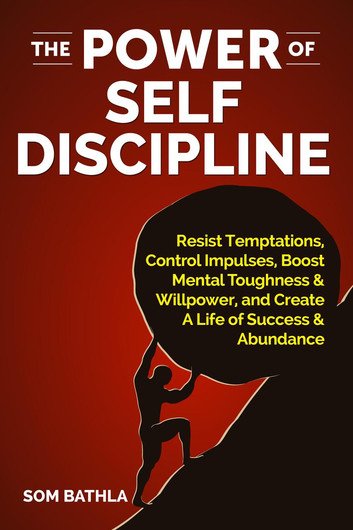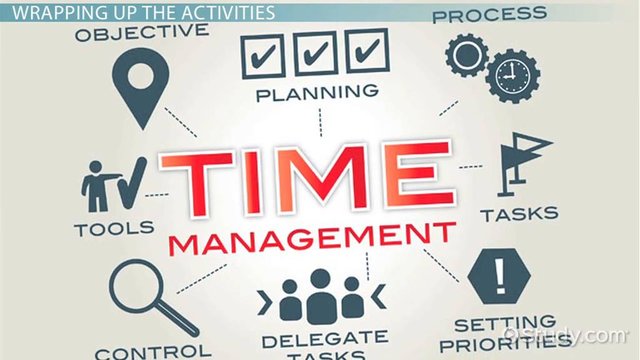Your Self-Discipline equipped with Time Management
Time management is really life management, personal management, management of yourself rather
than of time or circumstances.
Time is perishable; it cannot be saved. Time is irreplaceable; nothing else will do. Time is
irretrievable; once it is gone or wasted, you can never get it back. Finally, time is indispensable,
especially for accomplishments of any kind. All achievement, all results, all success requires time.
“If you do not conquer self, you will be conquered by self.”
You Can’t “Save” Time
The fact is that you cannot save time; you can only spend it differently. You can only reallocate your
time usage from areas of low value to areas of high value. Herein lies the key to success, and the
requirement for self-discipline.
Time management is the ability to choose the sequence of events. By exerting your self-discipline
with regard to time, you can choose what to do first, second, and not at all. And you are always free
to choose.
You require tremendous self-discipline to overcome the procrastination and delay that holds most
people back from great success. A native Indian once told me that “procrastination is the thief of
dreams.”
The Pareto Principle, the 80/20 rule, says that 20 percent of the things you do account for 80
percent of the value of what you accomplish. This means that 80 percent of what you do is worth 20
percent or less of the value of what you accomplish.
Assess the True Value of Everything You Do
Some things you do are five times and even ten times more valuable than other things, even though
they take the same number of minutes and hours. The most important things you do—the top 20
percent—are usually big, difficult, and daunting. In contrast, the 80 percent of things that you do that
make little or no difference to your life are usually fun, easy, and enjoyable.
You can tell the value that something has to you by the amount of your time you invest in it. You
always pay attention to and spend time on what you most value, whether it is your family, your health,
your social or sports activities, or your money and career. It is only by looking at how you spend your
time that you (and everyone else) know what is really important to you.
Some people say that career success is most important to them, and then they go home and watch
television several hours per day. Some people say their families are important to them, and then they
go out socializing or playing golf. Only your actions tell you—and others—what you truly value.
The essence of time management is for you to discipline yourself to set clear priorities—and then
stick to those priorities. You must consciously and deliberately select the most valuable and
important thing that you could be doing at any given time, and then discipline yourself to work solely
on that task.

Personal Strategic planning

Personal Strategic Planning
In corporate strategic planning, the main focus is on increasing the “return on equity.” Equity in a
business is defined as the amount of money invested in the business by the owners (aside from debt
and money borrowed). The purpose of strategic planning is to find ways to organize and reorganize
the business in such a way that the company is achieving a higher rate of return on this equity than it
would be in the absence of the planning process.
Companies invest financial capital, but individuals invest “human capital.” Companies deploy
financial assets, but your most vital assets are your mental, emotional, and physical energies. How
you invest them determines your entire quality of life.
In personal strategic planning, your goal is to get the highest “return on energy” from your
activities. Ken Blanchard refers to this as getting the highest “return on life.”
Just as you would be careful about investing your money so as to ensure that you get the highest rate
of return, you must be equally careful when you invest your time. You must be sure that you earn the
highest level of results, rewards, and satisfaction from the limited amount of time you have
Think Before You Act
Before you commit to any time-consuming activity, you must always ask, “Is this the very best use of
my time?”
Lack of self-discipline in time management leads people to procrastinate their top tasks
continually, causing them to spend more and more time on tasks of low or no value. And whatever
you do repeatedly eventually becomes a habit.
Many people have developed the habit of procrastination, of putting off their major tasks and
instead spending most of their time on activities that make very little difference in the long run.
Managing Your Time
There is a simple time management system that you can use to overcome procrastination. It requires
self-discipline, willpower, and personal organization, but the payoff is huge. When you use this
system, you can double or even triple your productivity, performance, output, and income.
Before you begin each day, start by making a list of everything you have to do that day. The best
time to make this list is the evening before, at the end of the workday, so that your subconscious mind
can work on your list of activities while you sleep. You will often wake up with ideas and insights
for how to more effectively complete the tasks of the day.
Then apply the A B C D E Method to your list:
• A = “Must do”—Serious consequences for noncompletion;
• B = “Should do”—Mild consequences for doing or not doing;
• C = “Nice to do”—No consequences whether you do it or not;
• D = “Delegate”—Everything you possibly can to free up more time for those things that only you can do;
• E = “Eliminate”—Discontinue all tasks and activities that are no longer essential to your work and to achieving your goals.
Review your list of activities for the coming day and write an A, B, C, D, or E next to each task
before you start.
If you have several “A” tasks, rank them by importance by writing A-1, A-2, A-3, and so on. Do
this with your B and C tasks as well.
The rule is that you should never do a B task when you have an A task left undone. You should
never do a lower-value task when you have a higher-value task before you.
Once you have organized your list using this system, discipline yourself to start on your A-1 task
first thing in the morning, before you do anything else.







